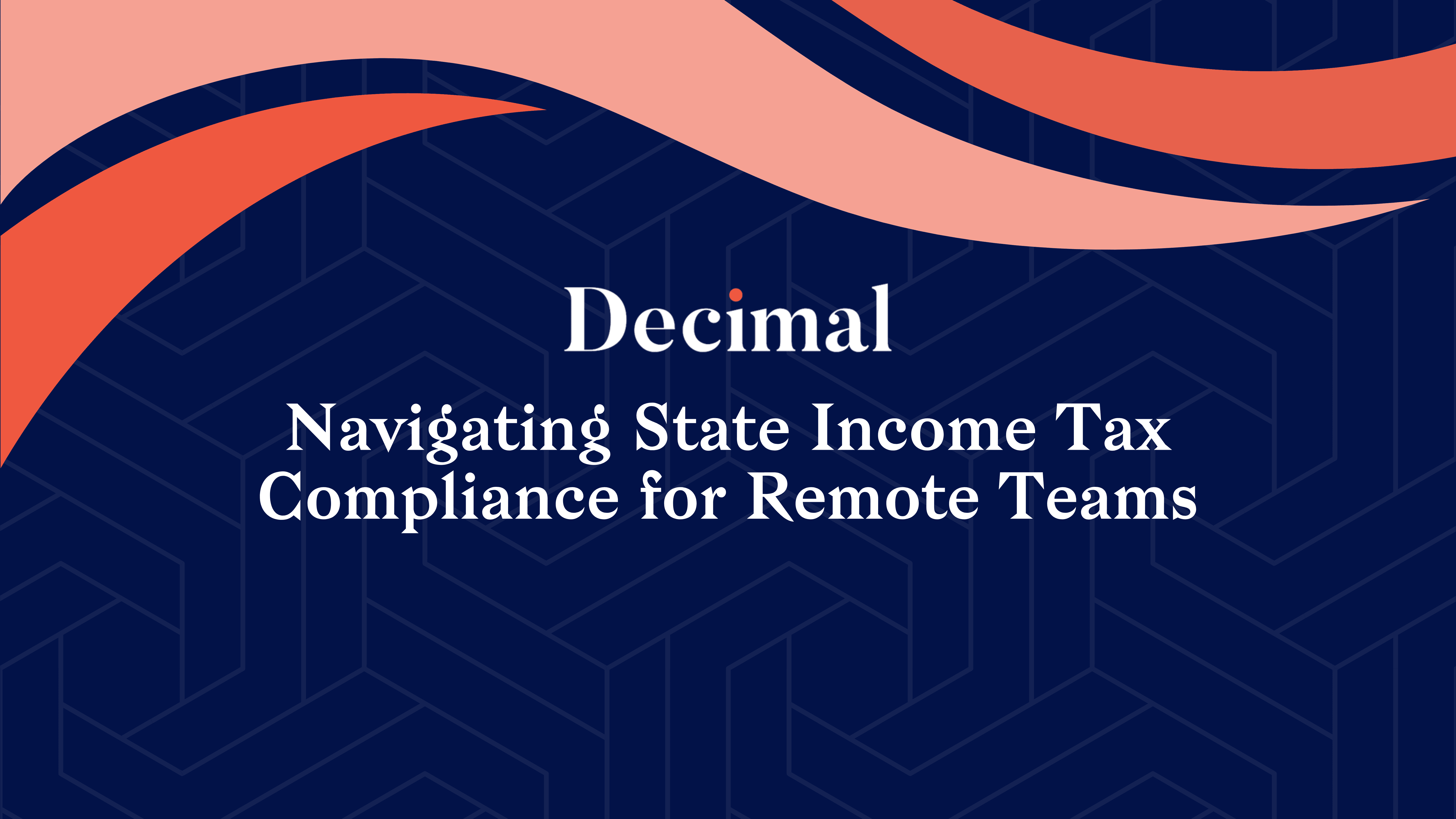Navigating State Income Tax Compliance for Remote Teams
Understand State Nexus and Withholding Requirements
A business establishes nexus in a state when it has a sufficient connection that triggers tax obligations. Traditionally, nexus was created through physical presence, such as an office or warehouse. Now, an employee working remotely in a different state can establish nexus on behalf of the business.
Once nexus is established, the business may be required to register with that state's tax agency and withhold income tax from the employee’s wages, even if the business has no other activity in that state.
Employers must track where employees perform their work and verify whether that location creates an income tax withholding obligation.
Register With Each Relevant State
If an employee lives and works in a state where the business is not already registered, the company may need to:
- Register for a state income tax withholding account
- File periodic withholding returns
- Submit annual reconciliation reports and W-2 forms to the state
These requirements vary by state. Some states have thresholds based on days worked, income earned, or number of employees. Others impose requirements immediately upon employment.
Failing to register in the appropriate jurisdictions can result in penalties, interest, and scrutiny during tax audits.
Monitor Reciprocal Agreements
Some states have reciprocal tax agreements with neighboring states. These agreements allow residents of one state to work in another without being subject to income tax withholding in the work state. In these cases, the employee pays income taxes only to their home state.
If applicable, employers must have employees complete the proper exemption forms to withhold tax only in the state of residency. Knowing which agreements exist helps prevent double taxation and unnecessary filing complexity.
Maintain Accurate Employee Location Records
Remote work introduces fluidity in where employees perform their duties. Some may move temporarily, others may work while traveling, and some may maintain dual residences.
To remain compliant, employers must accurately track the primary work location of each employee and update records promptly when changes occur. This includes identifying the actual state where the work is physically performed, regardless of the employee’s mailing address.
Using a centralized system to manage and verify work locations allows payroll teams to apply the correct tax rules to each employee’s situation.
Coordinate With Payroll and HR Systems
Tax compliance for remote teams depends on accurate coordination between finance, payroll, and human resources. Ensure your payroll system supports multi-state tax calculations and reporting. Configure each employee’s profile to reflect their correct work state and applicable tax rules.
HR should communicate promptly with finance when employees relocate, even temporarily, and update internal systems accordingly. Clear internal processes ensure accurate and timely payroll tax withholdings and filings.
Reevaluate Your Remote Work Policies
As remote and hybrid work models become permanent fixtures in business operations, it is critical to align remote work policies with tax and compliance strategies. Include language in employee agreements that outlines expectations for reporting work location changes and reinforces compliance responsibilities.
Establish guidelines for how and when remote work arrangements may trigger registration or compliance obligations in new states. These policies reduce the risk of noncompliance and ensure all departments operate from a shared understanding.
Plan Ahead for Multi-State Filings
Employers operating in multiple states should maintain a comprehensive calendar of filing requirements. These may include:
- Withholding tax return due dates
- Quarterly or monthly remittance schedules
- Annual reconciliation filings
- State-specific deadlines for issuing W-2s
Each state may have different rules, forms, and thresholds. Planning ahead ensures you stay compliant while avoiding missed deadlines or rushed filings at year-end.
Conclusion
As remote work expands, so do the tax implications. Employers must stay proactive in managing state income tax compliance by tracking employee locations, registering in applicable states, and maintaining accurate payroll systems. A thoughtful approach helps protect your business from risk while supporting a flexible workforce.
If you’re looking for expert guidance to simplify your tax filing process, schedule a time with a Decimal expert at https://www.decimal.com/contact-us
Getting started in days.
Ready to simplify your accounting? Schedule a call with our team and explore your options. We’d love to hear from you!

